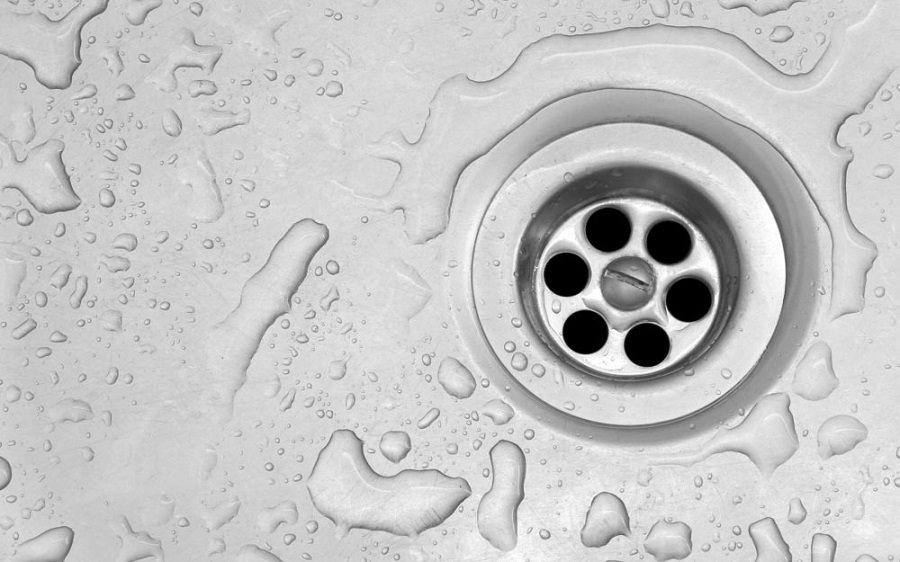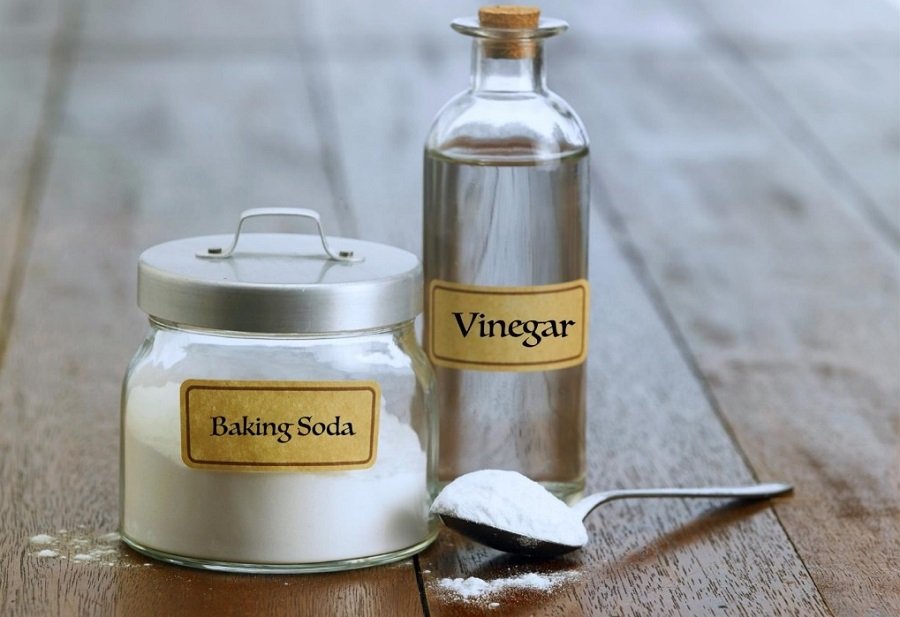
Everyone goes through a clogged drain at least once in their lives, yet it is truly an experience that nobody wants to go through. Clogged drains can happen suddenly without you noticing or due to slow buildup that happens over time. Many other solutions could be effective and you could try them before contacting a plumber, but some could mean using harmful chemicals. With the methods we are about to show you won’t be exposing yourself to harmful chemicals and instead try a few safe ways to clear out of the way a clogged drain at your house:
Baking soda and vinegar:
The reaction caused by mixing baking soda and vinegar can be very helpful to clean and unclog drains. Baking soda can help clean and deodorize an area due to being a mild alkali and by mixing it with vinegar it can help remove odors, stains, mold, rust, and even grease. You would need to start by cleaning your sink and put around a half cup of baking soda into the drain, once you are done proceed to pour the same amount of vinegar and wait while these do their cleaning reaction. It takes around an hour or so for the reaction to finish, then you can continue by pouring a pot of boiling water into the drain. Try repeating a few times until the drain is unclogged.

Try using a plunger:
Definitely not the cleanest solution to unclog a drain yet a very effective one is simply using a plunger. Plungers can help to unclog a drain via simple suction and pressure, which forces up any stuck material and unclogs the drain in the process. A plunger is very easy to use and all you need to do is fill the sink to around its half and plunge away. Adding hot water (But not boiling) when plunging can be very helpful as hot water can help in dissolving grease and other materials. Be sure to always wear rubber gloves when plunging as parts of whatever is stuck can fly towards you due to the plunger’s applied pressure and can indeed be very nasty.
Boiling water:
Whenever you are not going to plunge you won’t be exposing yourself to the clogged drain, so instead of hot water, you can use boiling water. Boiling water dissolves grease much quicker as well as other contaminants and helps in unclogging a drain quickly. You can always add liquids such as soap or even degreaser to make boiling water much more effective when trying to unclog a drain. Always be careful when handling boiling water as burns can become quite bad if not handled properly. Boiling water is recommended especially when drains around the kitchen clog, as most commonly these get blocked due to grease buildup.
Bent wire hanger:
What clogs your drain can be more than just dirt or grease because it can be hair or bigger materials. A wire coat hanger is excellent when removing hair stuck on your drains. By leaving the coat hanger’s hook and straightening the hanger as a whole you can catch all these contaminants that are blocking your drain pipes where other shorter things may not be able to reach. Hair, food buildup or even toiletries could be removed via a wire coat hanger, yet always be careful you don’t damage the pipes or the drain itself when trying to fish out any unwanted material.
Vacuuming the clogged drain:
The methods above can be very helpful depending on what is clogging your drain. For example, boiling water can be very useful to remove any clogging caused due to grease, yet if the clog is happening because of hair buildup it may not be effective at all. If after trying these methods you are still having trouble, then perhaps getting professional help is a much better idea. Be sure not to try using harmful chemicals yourself to unclog drains so you don’t endanger yourself. If you are in need of professional help then Flo-Well Drainage & Gutter Cleaning Services surely is an excellent idea.
Another method that is not as complicated as it sounds is to vacuum a clogged drain. The easiest way to do this is to attach an old plunger head into your vacuum (You may need to be creative) and then vacuum away on its highest setting. By doing this whatever is causing the clog can be forced upwards and into the vacuum bag. This method can be useful for drier clogs rather than those already wet, yet it depends on how strong is your vacuum and on which area of the drain is the blockage happening.




